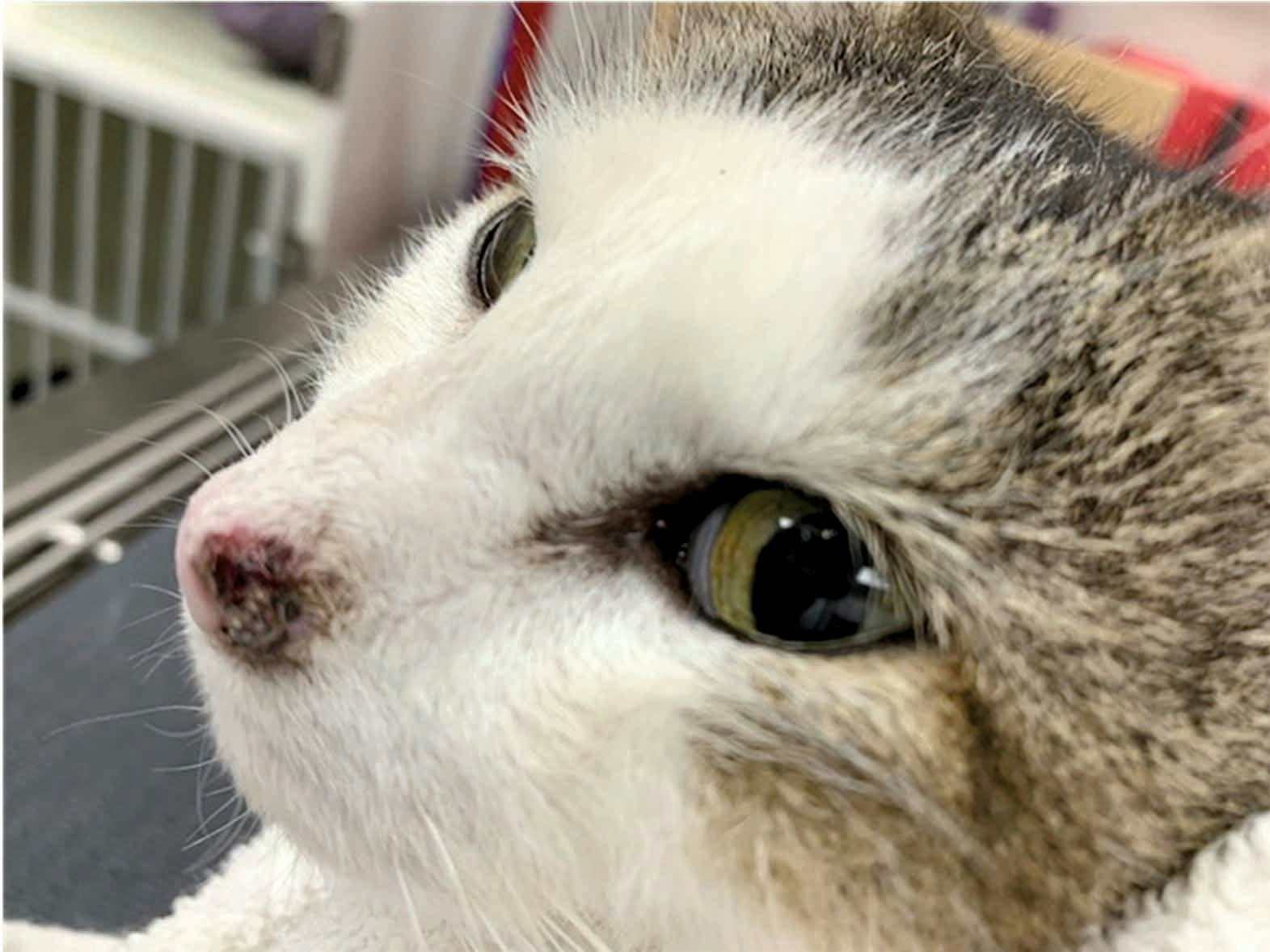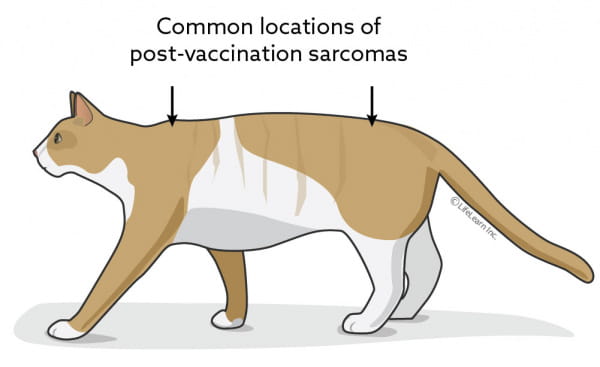sarcoma in cats symptoms
Firm lump under skin Nausea Vomiting Diarrhea Weight loss Aversion to food Trouble swallowing Bad breath Lethargy Lameness Causes of Soft Tissue Cancer in Cats. Most soft tissue sarcomas are solitary tumors in middle to older aged pets and tend to be over-represented in large breed dogs.

5 Ways You Can Be A Better Cat Owner This Year Cats Cat Symptoms Cool Cats
However cats can develop all sorts of lumps bumps and cysts some benign and unfortunately some malignant tumors cancerous.

. Certain skin diseases can also develop nodule like skin lesions which could be mistaken for. When a malignant tumor gets bigger the likelihood that the cancerous particles will spread increases. Bone Cancer in Cats.
Pets with intestinal tumors may have signs of an intestinal blockage such as vomiting diarrhea lack of appetite weight loss and abdominal pain. You may read this list of symptoms and they think theyre the same for many health concerns and youre right. Feline injection-site sarcomas are hard to talk about.
Persistent sores - sores that dont heal need to be looked at by a professional. A mass that you can. However the predominant symptoms are.
Injection-site sarcomas in cats are very difficult to treat. Depending on your cats tumor type and location clinical signs may include. Difficulty with bathroom chores.
Vaccine-Associated Sarcomas VAS In 1991 veterinarians began noticing a larger number of. Other Symptoms of Cat Cancer. They can be wide plaques or lumps.
Pets with soft tissue sarcomas in the mouth often have bad breath halitosis difficulty eating loss of. Sarcomas are a specific type of cancer. Bone Cancer in Cats.
These tissues represent 15 of all skin tumors and 7 of all subcutaneous tumors in cats and dogs. They present as a subcutaneous beneath the skin lump and are malignant tumors arising from transformed cells. Cutaneous mast cell tumors present as lumps swellings or lesions in the skin or under the skin usually around the head and neck but sometimes elsewhere.
Once they spread to other parts of the body more symptoms will appear. Get NHVs most useful pet cancer supplements in one holistic pack. Pets that have tumors arising from nervous tissue may be unable to use the affected limb or may show other neurological signs.
It creates a lot of physical discomfort for cats with osteosarcoma tumors which also means that these tumors are more noticeable than many other tumors in cats. Feline injection-site sarcoma arises from connective tissues. The symptoms of a soft-tissue sarcoma depend on its location on a cat.
Sores lumps a strange odor bleeding or a change in gum color can be a sign of oral cat cancer particularly in older cats. Typically they are shiny pink hairless nodules on the skin but there are many variations on this. Foul odor - healthy cats dont smell.
Ad Help your pet cope with symptoms like nausea loss of appetite and energy. Risk of malignant tumor metastasis. Its important to rule out malignant tumors which can also occur in cats eg.
They are also thankfully quite rare with only one in 1000 to one in 10 000 cats affected with this disease. Often the symptoms will depend on the area of the body the cancer is affecting. These sarcomas are usually seen as single firm lumps under the skin commonly over the flank or shoulder blade.
Lumps may be fleshy or firm The cat may not feel pain from the lumps Lumps are irregularly shaped. Having said this being rare is not a comfort if your cat is the wrong number in the statistic. Melanoma leukemia mast cell tumor histiocytic sarcoma etc.
Seizures Staggering or stumbling when walking ataxia Trouble balancing Head tilt Blindness Pacing or circling Increased vocalization Increased thirst and urination. The clinical signs of feline mast cell tumors depend on the location of the tumor. There are different forms of sarcoma that develop in cats.
Treatment combining surgery chemotherapy and radiation therapy significantly increases the tumor free time to 18-24 months. Cats with tumors on the legs where an amputation can be performed appear to do better than cats with tumor on the trunk of the body. The symptoms that follow as the cancer progresses will have very much to do with the type of soft tissue that the tumors have formed on.
Regardless of underlying tissue type all injection site sarcomas behave as locally aggressive tumors with a modest chance of spread to. If the cancer is affecting the jaw you might notice they are having trouble opening their mouth and eating or lots of saliva in their mouth. The main reason for this serious discomfort is that osteosarcoma creates a malignant tumor meaning it is very dangerous and often fatal.
The most common injection-site sarcoma in cats is a fibrosarcoma. They usually do not develop sooner than three months after a vaccination. Injection-site sarcomas must be differentiated from other types of vaccine associated reactions which can include mild symptoms such as weakness and fever to the development of hard lumps at the vaccine site after vaccination.
Feline sarcoma also known as soft tissue sarcoma is a type of cancer that develops in the connective tissues in petsAlthough these soft tissue tumors can arise anywhere in the cats body they commonly develop on the skin or subcutaneously. A weakened immune system and weight loss in your felines are other symptoms of this disease.

1 Year Old Cat With Feline Sarcoma Saved From Being Put Down Cats Cat Parenting Old Cats

Mast Cell Tumors In Cats Symptoms Causes Treatments Cattime Cats Cat Symptoms Cat Facts

Vet Focus 31 1 Diseases Of The Feline Nasal Planum Vet

Pin By The Night Traveller On Cats Sarcoma Feline Cancer Story

Mast Cell Tumors In Cats Symptoms Causes Treatments Cattime Mast Cell Tumor Cat Symptoms

Diagnosis And Treatment Of Cancer In Cats

Mast Cell Tumors In Cats Symptoms Causes Treatments Cattime Mast Cell Cat Symptoms Cats

